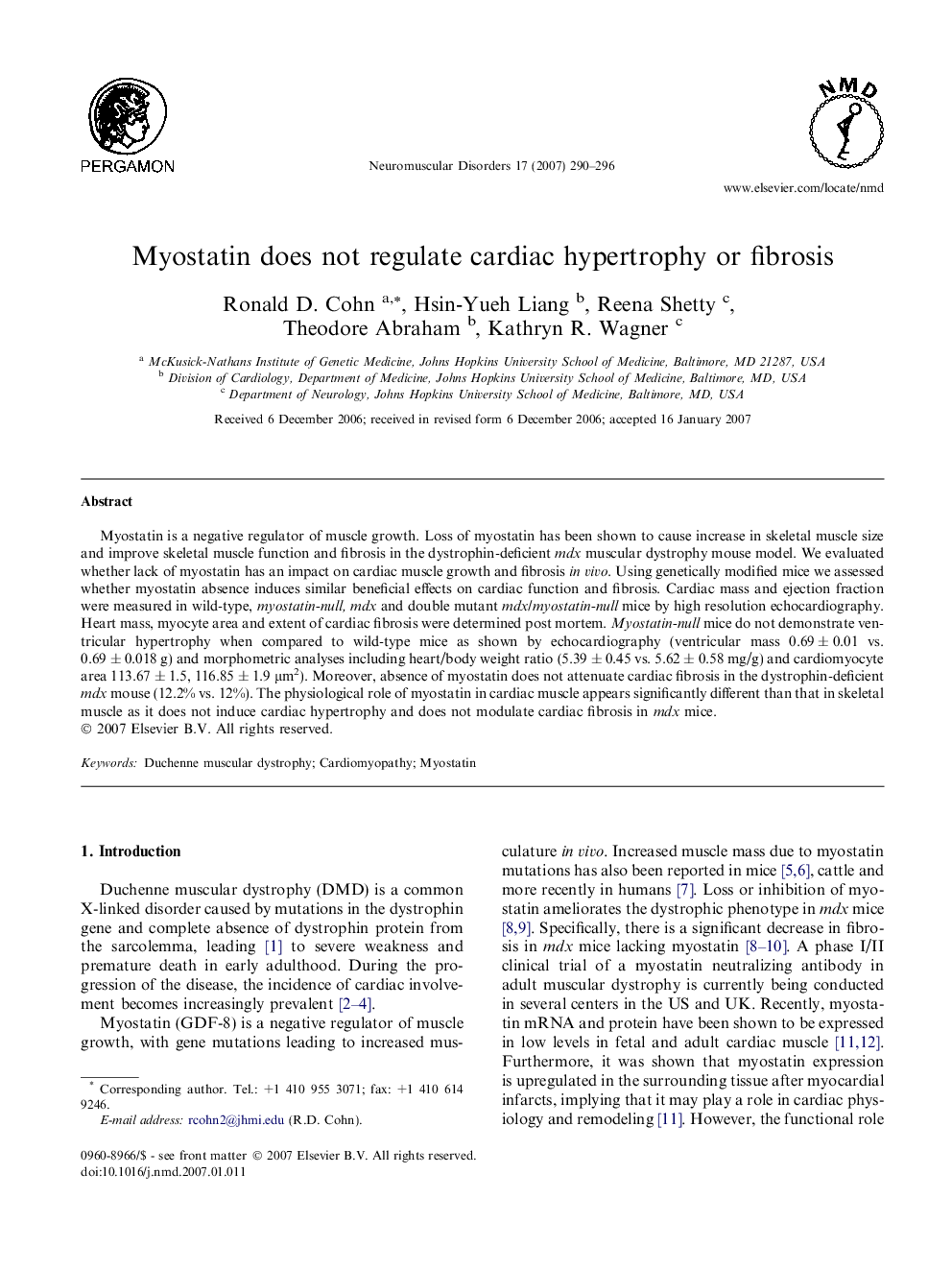| Article ID | Journal | Published Year | Pages | File Type |
|---|---|---|---|---|
| 3081373 | Neuromuscular Disorders | 2007 | 7 Pages |
Abstract
Myostatin is a negative regulator of muscle growth. Loss of myostatin has been shown to cause increase in skeletal muscle size and improve skeletal muscle function and fibrosis in the dystrophin-deficient mdx muscular dystrophy mouse model. We evaluated whether lack of myostatin has an impact on cardiac muscle growth and fibrosis in vivo. Using genetically modified mice we assessed whether myostatin absence induces similar beneficial effects on cardiac function and fibrosis. Cardiac mass and ejection fraction were measured in wild-type, myostatin-null, mdx and double mutant mdx/myostatin-null mice by high resolution echocardiography. Heart mass, myocyte area and extent of cardiac fibrosis were determined post mortem. Myostatin-null mice do not demonstrate ventricular hypertrophy when compared to wild-type mice as shown by echocardiography (ventricular mass 0.69 ± 0.01 vs. 0.69 ± 0.018 g) and morphometric analyses including heart/body weight ratio (5.39 ± 0.45 vs. 5.62 ± 0.58 mg/g) and cardiomyocyte area 113.67 ± 1.5, 116.85 ± 1.9 μm2). Moreover, absence of myostatin does not attenuate cardiac fibrosis in the dystrophin-deficient mdx mouse (12.2% vs. 12%). The physiological role of myostatin in cardiac muscle appears significantly different than that in skeletal muscle as it does not induce cardiac hypertrophy and does not modulate cardiac fibrosis in mdx mice.
Related Topics
Life Sciences
Neuroscience
Developmental Neuroscience
Authors
Ronald D. Cohn, Hsin-Yueh Liang, Reena Shetty, Theodore Abraham, Kathryn R. Wagner,
